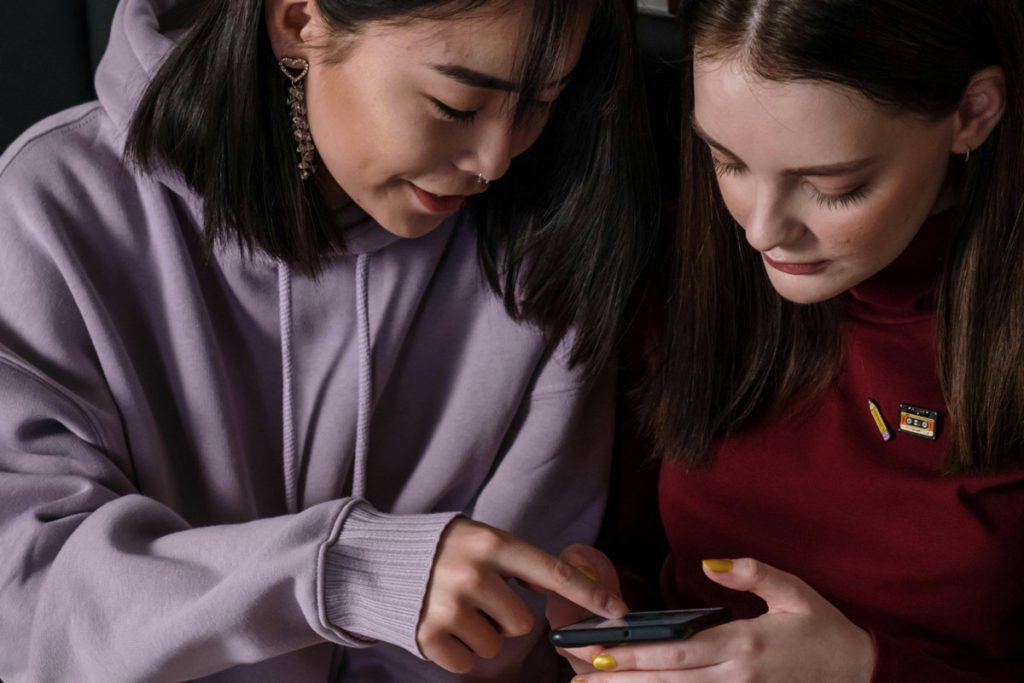“I feel like I am constantly drowning in pressure. School, peers, social media, the future… It’s overwhelming.”
The statement is by a high-schooler from Generation Z (aka Gen Z, born between 1997 and 2012). It paints a stark picture of a generation grappling with an unprecedented mental health crisis.
It’s not uncommon for Gen Zers to feel emotionally distressed more often than not (1 in 4 says so). The mental health challenges faced by this generation have reached alarming levels. 42% of Gen Zers have been diagnosed with mental health problems, with anxiety, depression, and suicidal thoughts the leading issues.
But is it truly an epidemic or merely a consequence of increased awareness? Whatever the case, per several studies, mental health issues are on the rise. It’s our collective responsibility to check the massive shift in Gen Z’s mental health and help them feel at ease.
The situation may seem bleak. Not all is lost, however. There is a beacon of hope: Telehealth. Combined with traditional counseling methods and community support, telehealth mental services can help Gen Zers manage their stress and thrive.
Gen Z Mental Health Crisis Explained
The Gen Zers were born in the age of unparalleled technological progress. They are more than just social media addicts. They are the true digital natives. While they have embraced technology like no previous generation, they aren’t immune to its nefarious side. A McKinsey survey found that among Gen Zers, higher social media use is associated with poorer mental well-being.
Even the data paints a concerning picture:
- Per APA’s 2023 report, 58% of 18- to 34-year-olds said they were completely overwhelmed by stress on most days.
- More than 1 in 2 Gen Zers (54%) reported their anxiety worsened in 2023, the leading cause being future worries.
- Among people aged 10-24, the suicide rate increased by 62% from 2007 to 2021.
While these startling figures may point to more Gen Zers opening up and seeking help than prior generations, we cannot ignore the raw data. Gen Z faces a distinct mental health challenge, aggravated by several cultural and socio-economic factors.
Gen Zers have been subject to elevated anxiety levels owing to academic pressures, mass shootings, financial debts, and increasing unemployment. Climate change, politics, war, and worries about the nation’s future induce stress in this generation.
Moreover, technology overuse has produced disturbing mental health effects among them. The hyper-connected world of social media and the ubiquity of negative news have dire consequences: constant comparison, acute loneliness and FOMO (fear of missing out), low self-esteem, intense agony, and cyberbullying have taken a toll on younger minds. For instance, Instagram faces accusations of creating a wrong sense of body image for 1 in 3 teenage girls.
Part of the solution to Gen Z’s predicament lies in convenient, equitable, and affordable access to mental health resources, catering to their unique issues and needs.
Telehealth: Therapy on Your Terms
There is ample hope for Gen Z since they are the ones who have embraced technology and don’t shy away from accepting their mental health issues. Per a 2022 study, 70% of Gen Z said their mental health needs urgent attention. Another 2021 study reported that nearly 4 out of 10 Gen Zers/Millennials were more likely to seek help, significantly more than Gen X and Baby Boomers.
While technology has its downsides, it is not all evil. Its advancements have given us telemedicine. Since Gen Z are digital natives, they are tech-savvy. A 2023 PYMNTS Gen Z study observed, “Gen Z engages in every type of digital healthcare activity more than other generations.” Per the survey of 2,735 Gen Z consumers, 62% use patient portals, and 55% make virtual appointments.
They increasingly view healthcare as just another digital service. Like online shopping and food delivery, they demand more convenience, cost-effectiveness, efficiency, and transparency in medical services.
This is exactly what online telehealth services offer. Telehealth services include counseling through audio/video conferencing, chatting with mental health experts, and engagement through online telehealth platforms.
It provides what Gen Zers are looking for: the convenience of using the service on their terms, the personalized care of 1-on-1 online consultations, the anonymity that reduces stigma, and the affordability of virtual therapy.
Can Telehealth Save Gen Z?
Telehealth shines as a promising tool for Generation Z, offering many advantages in tackling their mental health challenges. Yet, it’s essential to acknowledge that telehealth isn’t a silver bullet for the mental health dilemmas they face. The journey towards universal acceptance of telehealth is fraught with obstacles.
A significant concern raised by many is the difficulty in mirroring the strength of connection achieved in traditional, face-to-face therapy sessions. The reality of digital inequality further complicates this issue, as not all individuals from Generation Z have the luxury of owning the necessary gadgets or securing stable internet connectivity for telehealth services. Moreover, there’s a variance in comfort levels among this demographic when it comes to navigating telehealth technologies, alongside hurdles in accessing affordable and fair telemental health services.
However, it’s essential to view telehealth not as a standalone solution but as a complementary component of a broader mental health care strategy. It holds potential when used in conjunction with other treatment methods. For example, blending telehealth with conventional therapy offers a mix of virtual and physical spaces for healing. At the same time, community support groups can provide a vital network of resources for mental well-being. Furthermore, broadening the spectrum of insurance coverage and introducing more inclusive financial support schemes are crucial steps towards democratizing access to mental health services for all, including the members of Generation Z.
With online platforms their second home, Gen Zers are more inclined to use telehealth. A McKinsey survey of more than 42,000 respondents across continents found 22% of Gen Z using digital mental health programs.
Several initiatives have also been taken at the state and school levels in the US to tackle the Gen Z mental health crisis. For instance, the Cherry Creek school system in Denver has launched a telehealth therapy program for children. More schools have followed suit, with 80 school districts providing telehealth by 2022. TCHATT, a Texas State initiative, provides tele-mental health services to state-wide school districts to identify gaps in behavioral health support for teens and children.
Now’s the time for telehealth providers to strike the iron. Digital health providers must redesign their services to consider the young since they are more likely to access digital healthcare and are their major future consumers.
Gen Z is the Future
Investing in the mental well-being of Generation Z is not just beneficial; it’s a critical investment in our collective future. This dynamic group holds the keys to tomorrow’s innovations, leadership, and policy reforms. By providing them with robust mental health support, we’re essentially laying the groundwork for a brighter, healthier future—a future where mental health assistance is not only accessible but also tailored to their unique needs and preferences.
Telehealth, while not a cure-all, can play a pivotal role in this transformative journey, especially when integrated with traditional care methods and the invaluable human connection. Generation Z, being digital natives, is already well-versed in technology. What remains is to dismantle the barriers of stigma and ensure fair access to these digital tools for mental health enhancement.
Now is the moment for us to come together and champion telehealth as a powerful tool that will enable Generation Z to lead lives of wholeness and deep satisfaction. Let’s collaborate to unlock the full potential of telehealth, making it a cornerstone of a future where all young people have the support they need to thrive mentally and emotionally.
About the Author: Ayesha Khan is a registered medical professional and former research fellow at NYU. She is distinguished for her insightful blogging on healthcare topics featured in prestigious newspapers and scientific journals. With an MBA in Marketing from Drexel University, she currently serves as the Vice President of Social Communications and Strategy at Renaissance Marketing Group. She possesses multifaceted expertise in both healthcare and strategic marketing. Ayesha further contributes to the advancement of healthcare through telemedicine as one of the panel doctors at “24HrDOC.” She is a versatile professional dedicated to positively influencing the healthcare industry, enjoying reading and shopping in her spare time.
May Is Mental Health Month 2024
Where to Start: Mental health in a changing world
May is Mental Health Month, a time to spread public awareness and education about mental health conditions and reflect on the impact of mental illness on individuals and their families.
The world is constantly changing – for better or for worse – and it can be overwhelming to deal with everything going on. While society is becoming more comfortable discussing mental health, it can still be hard to know "Where to Start" when it comes to taking care of your own well-being.
This month, we will feature blog posts and information to help you or a loved one get started on the path to mental wellbeing.
Mental Health Month is also a time to recognize and commit to changing the racial and economic inequities in our healthcare system, especially in the treatment of mental health conditions.
www.rtor.org and its sponsor Laurel House are committed to advancing racial equity and social justice and making mental health services accessible to all.
References:
- Psychiatrist.com: https://www.psychiatrist.com/news/survey-42-of-gen-z-diagnosed-with-a-mental-health-condition/
- APA: https://www.apa.org/topics/stress/generation-z-millennials-young-adults-worries
- CDC: https://stacks.cdc.gov/view/cdc/128423
- The Anne E. Casey Foundation: https://www.aecf.org/blog/generation-z-and-mental-health
- McKinsey Consumer Survey: https://www.mckinsey.com/industries/healthcare/our-insights/addressing-the-unprecedented-behavioral-health-challenges-facing-generation-z
- McKinsey Health Institute’s (MHI’s) 2022 Global Gen Z Survey: https://www.mckinsey.com/mhi/our-insights/gen-z-mental-health-the-impact-of-tech-and-social-media
- Harmony Healthcare IT: https://www.harmonyhit.com/gen-z-anxiety-statistics/
- The Wall Street Journal: https://www.wsj.com/articles/facebook-knows-instagram-is-toxic-for-teen-girls-company-documents-show-11631620739
- Ogilvy Report: https://www.ogilvy.com/sites/g/files/dhpsjz106/files/pdfdocuments/Gen%20Z%20and%20Mental%20Health%20in%20the%20US_February%202022%20Report.pdf
- Value Penguin Report: https://www.valuepenguin.com/therapy-health-insurance-coronavirus
- PYMNTS: https://www.pymnts.com/healthcare/2023/gen-z-is-generation-digital-health-as-62percent-use-patient-portals/
- Washington Post: https://www.washingtonpost.com/education/2022/12/09/telehealth-remote-student-mental-health/
- The University of Texas System: https://tcmhcc.utsystem.edu/tchatt/
Photo by cottonbro studio: https://www.pexels.com/photo/close-up-shot-of-two-teenagers-looking-at-a-smartphone-6214559/
The opinions and views expressed in any guest blog post do not necessarily reflect those of www.rtor.org or its sponsor, Laurel House, Inc. The author and www.rtor.org have no affiliations with any products or services mentioned in the article or linked to therein. Guest Authors may have affiliations to products mentioned or linked to in their author bios.
Recommended for You
- When Everything Feels Urgent: How Clarity Protects Your Mental Health - December 18, 2025
- How to Protect Your Mental Health During the Holidays with a Gentle Reset - December 17, 2025
- Crisis Transport for Teens: A Compassionate Bridge to Mental Health Care - December 15, 2025







